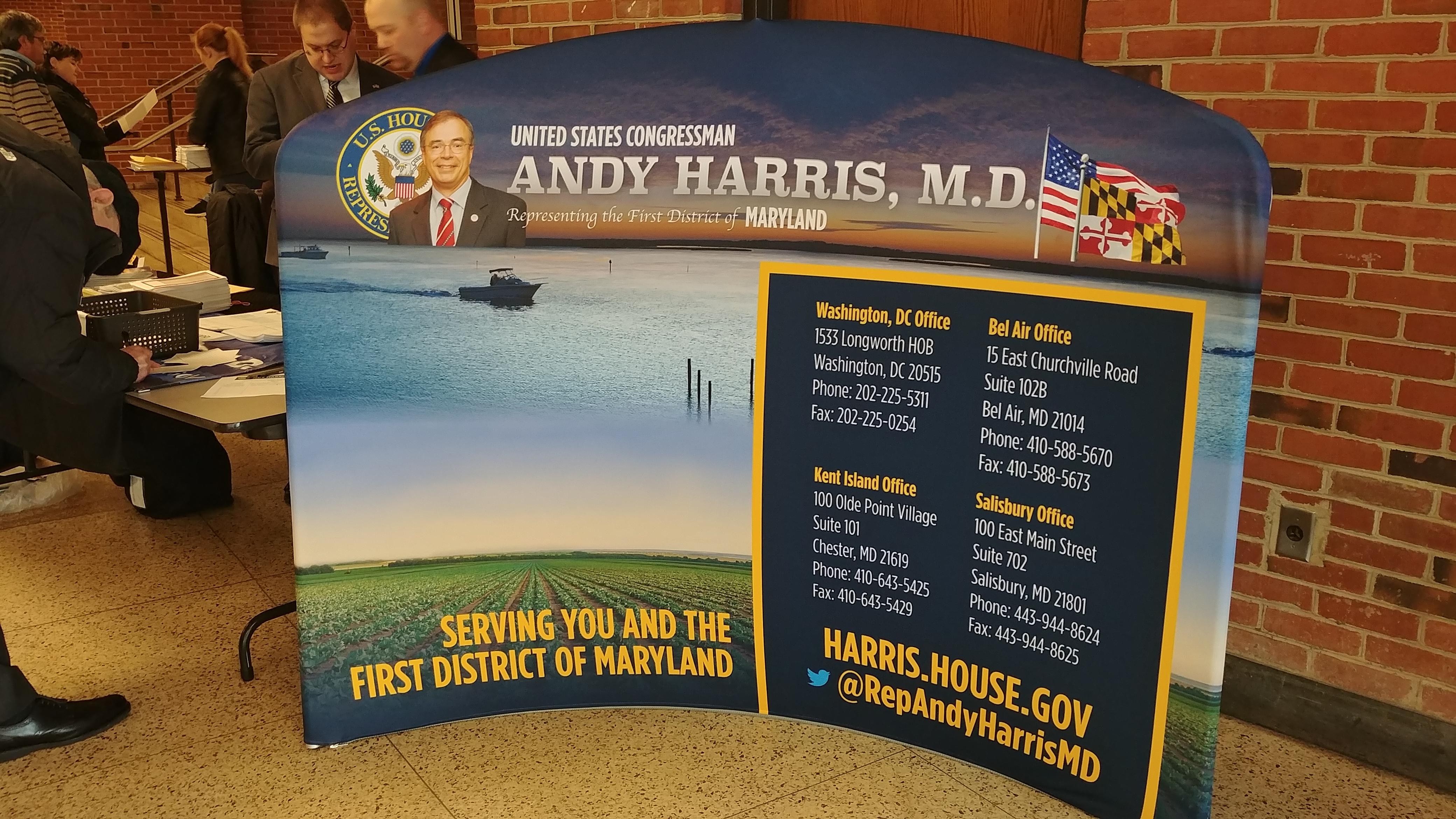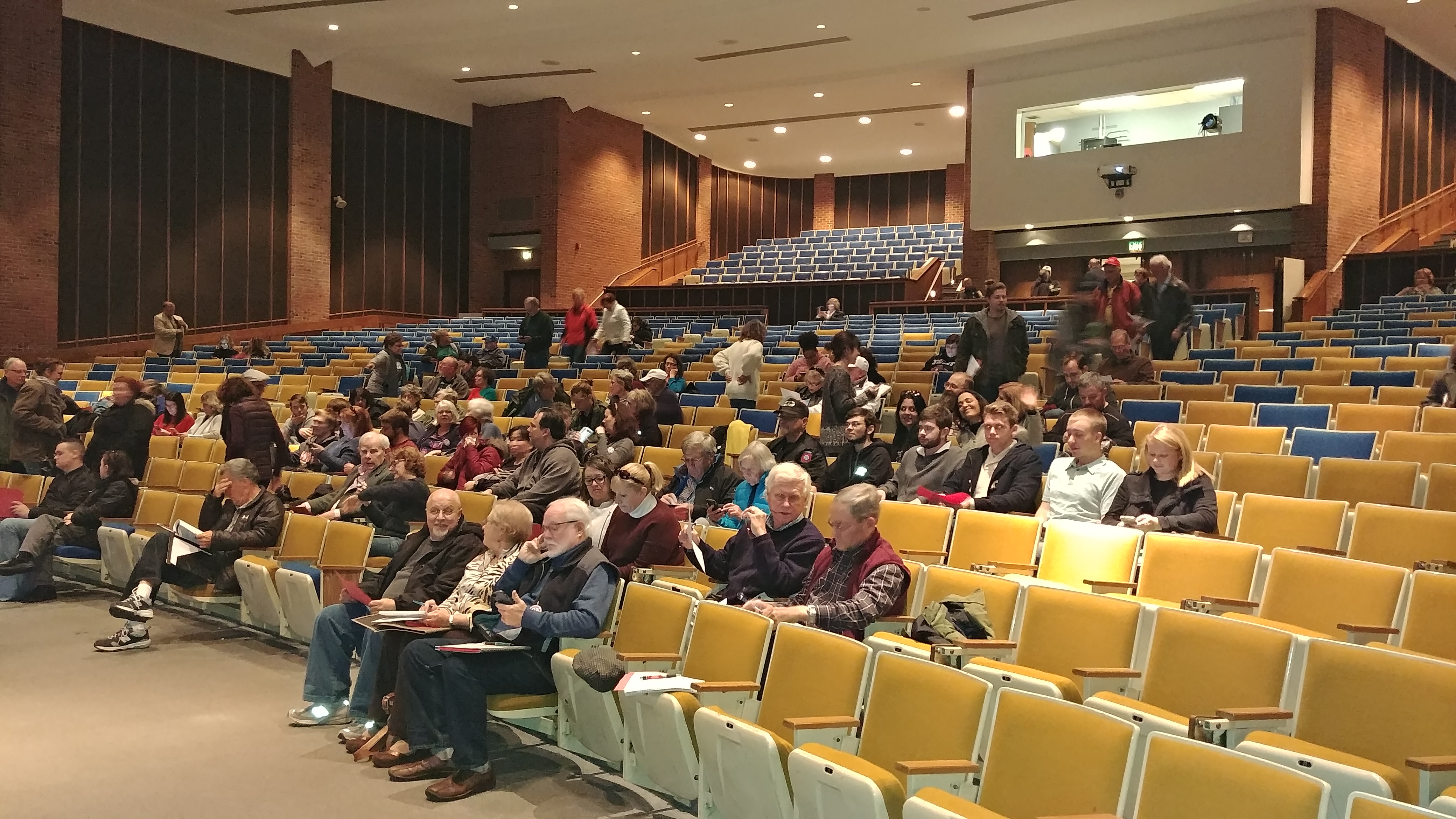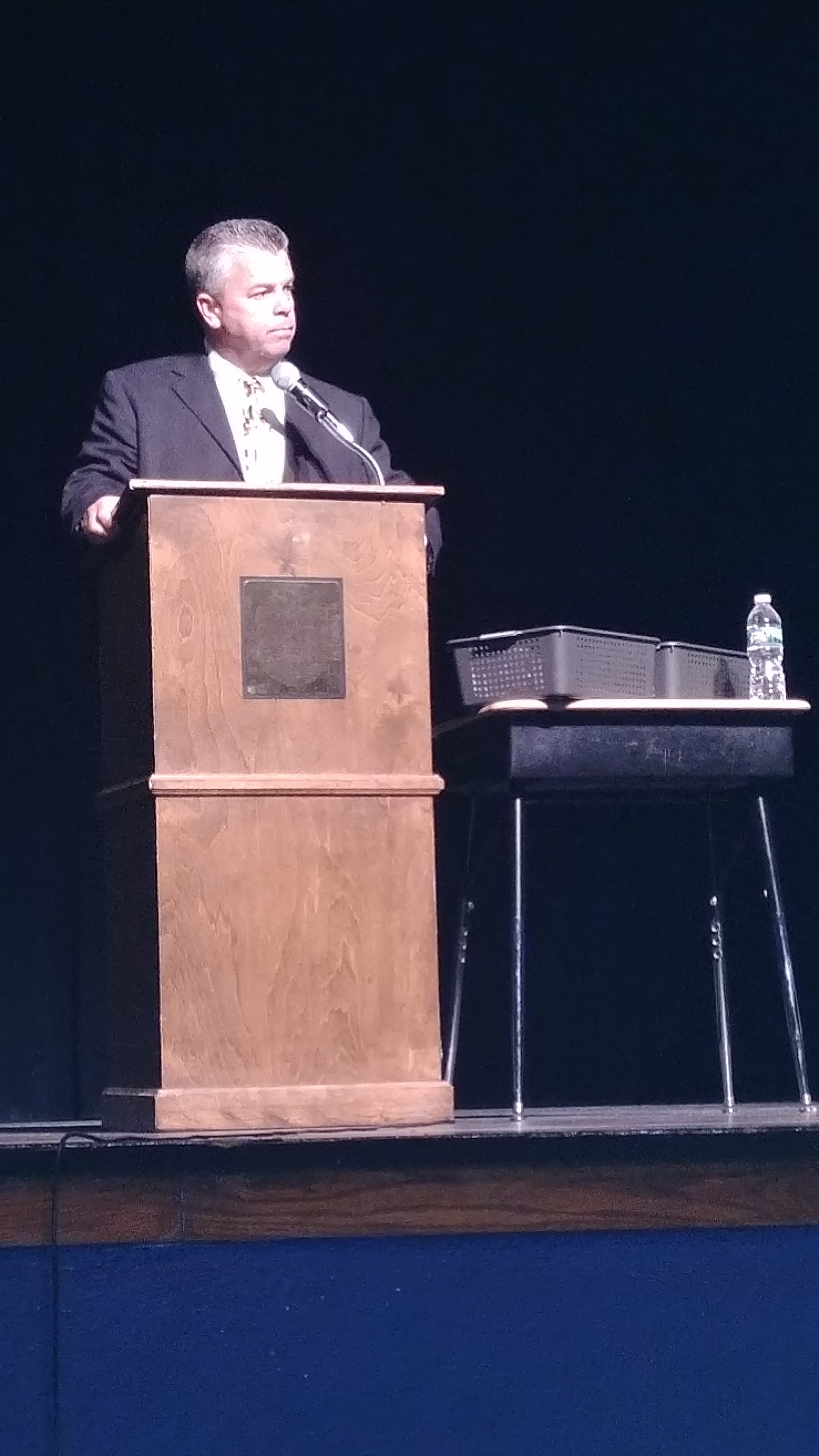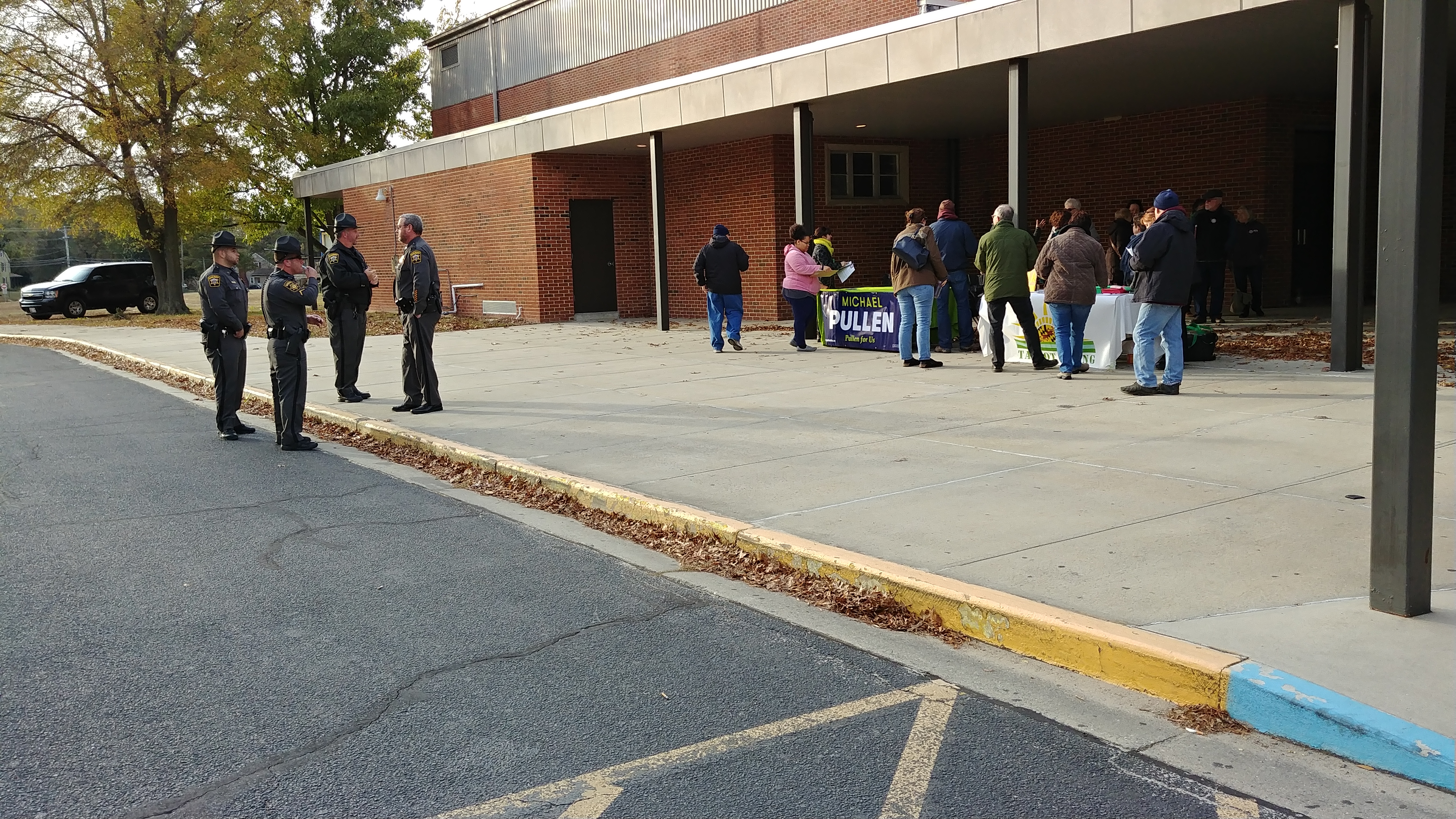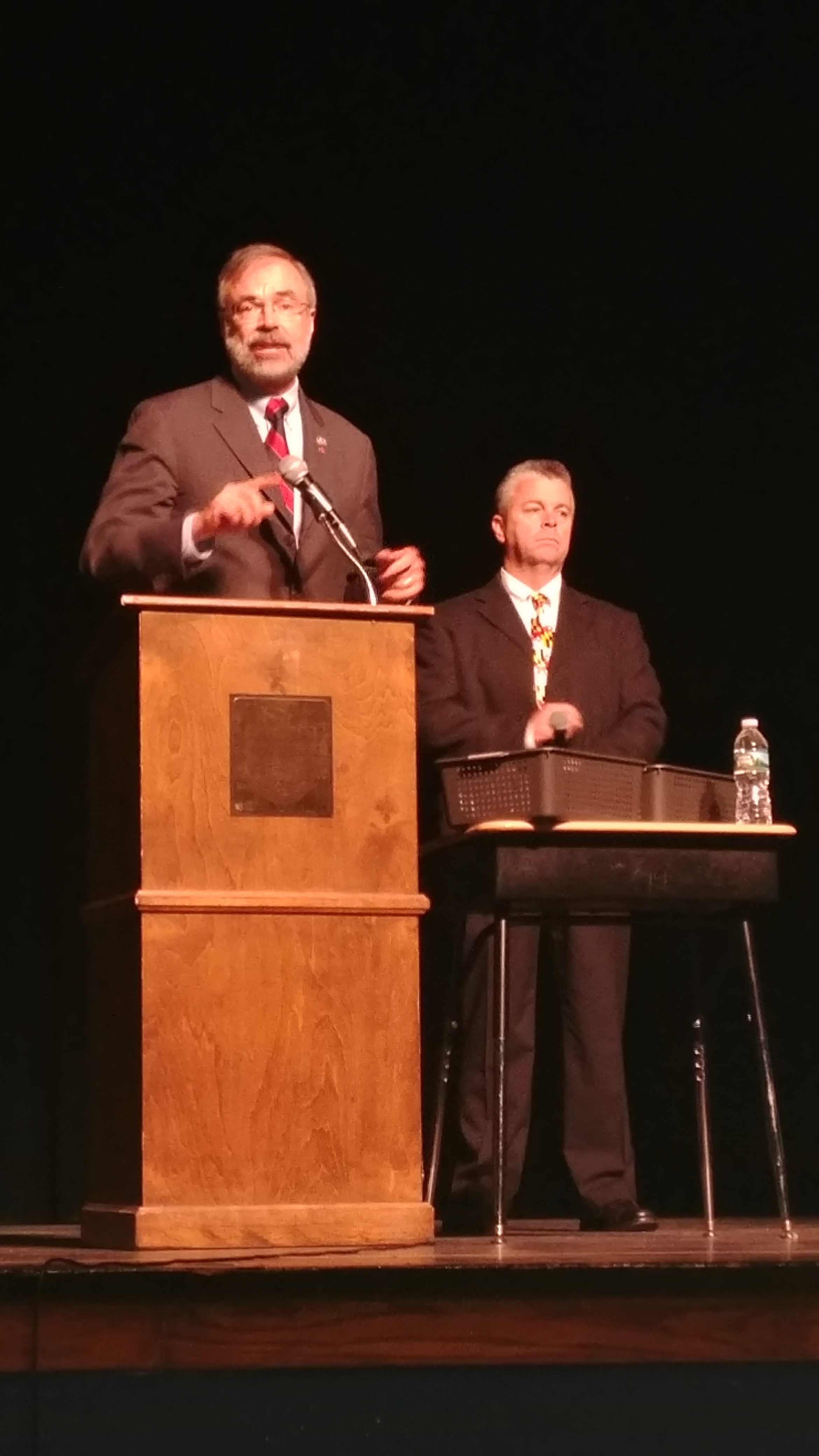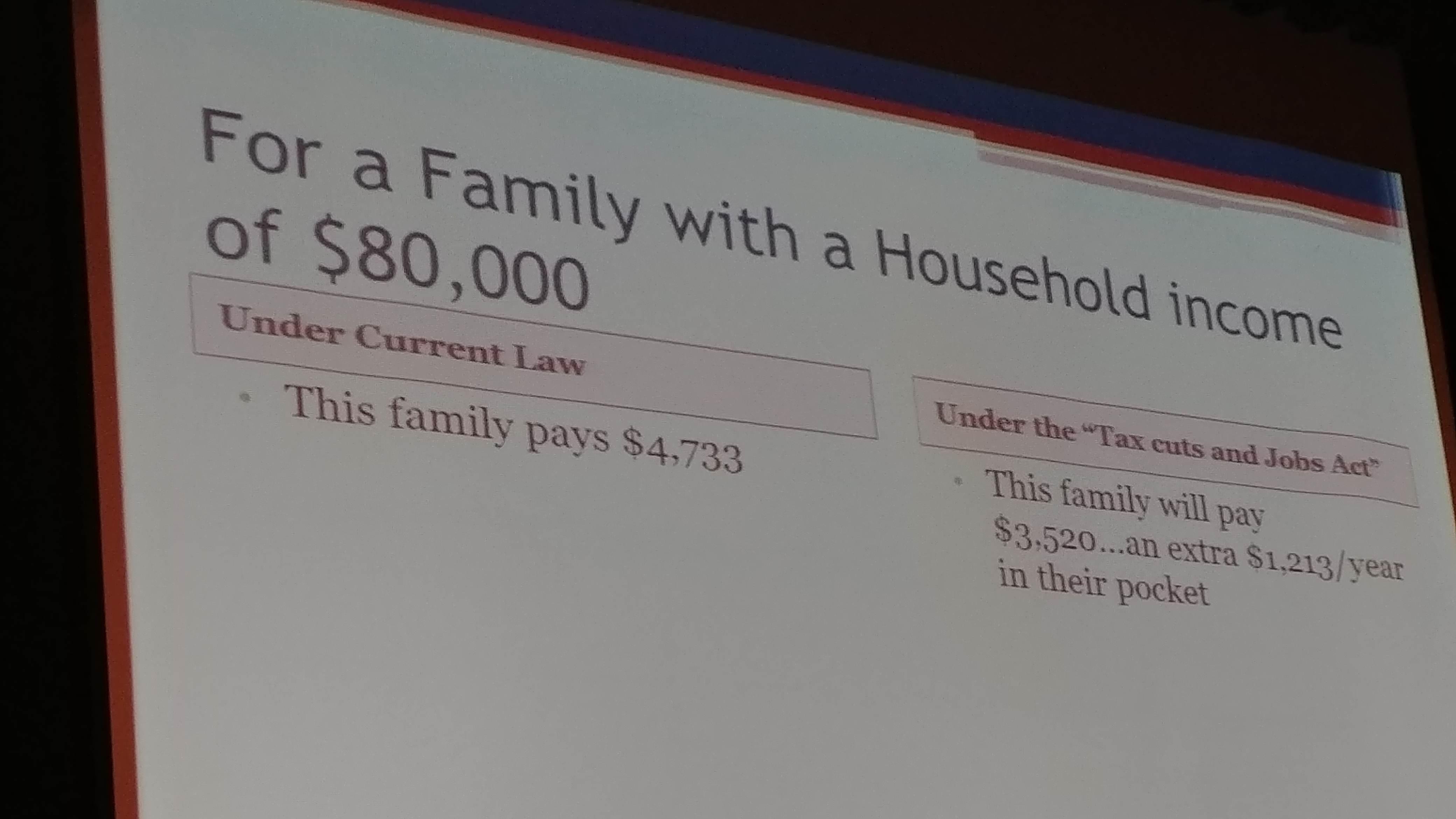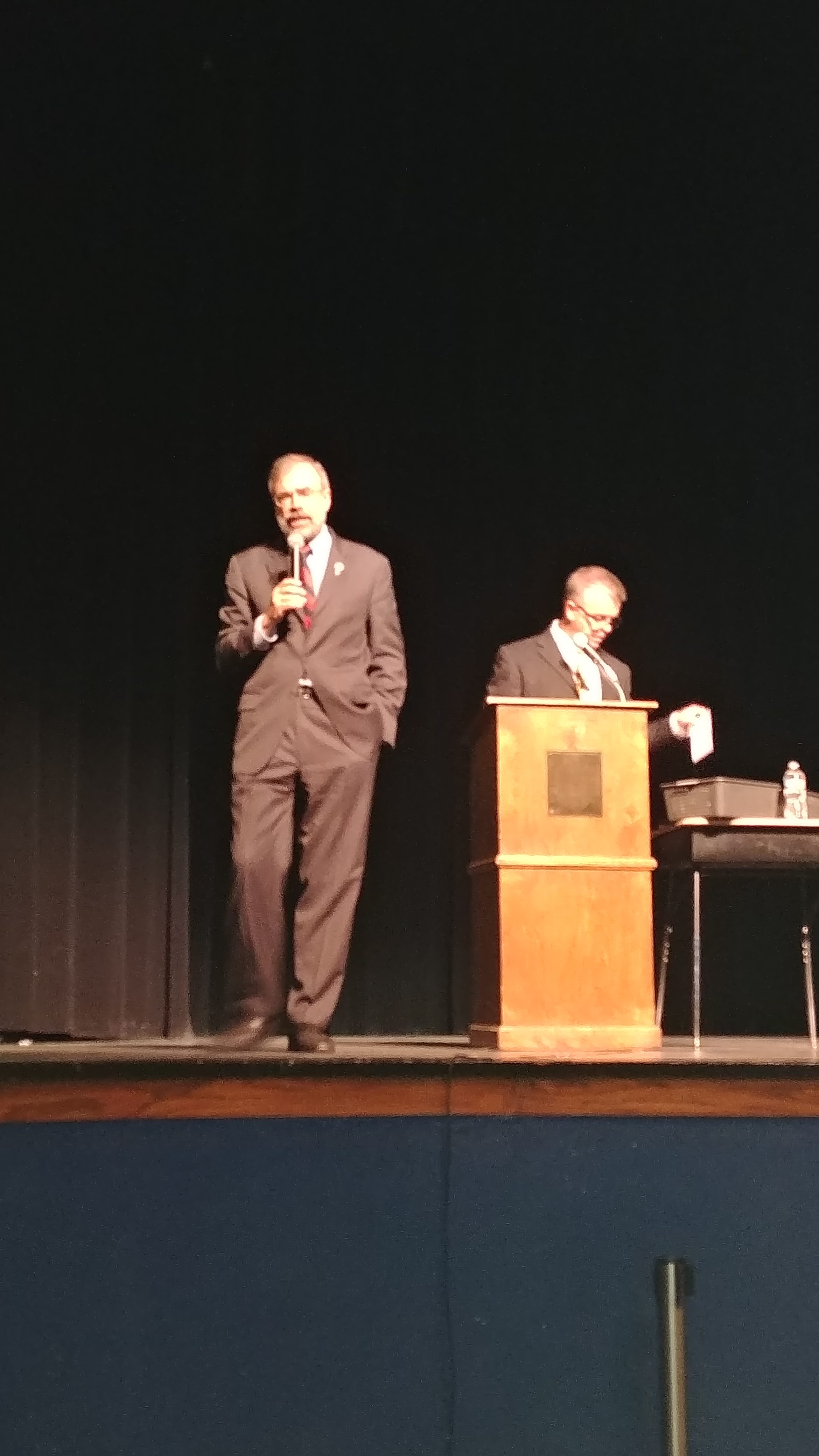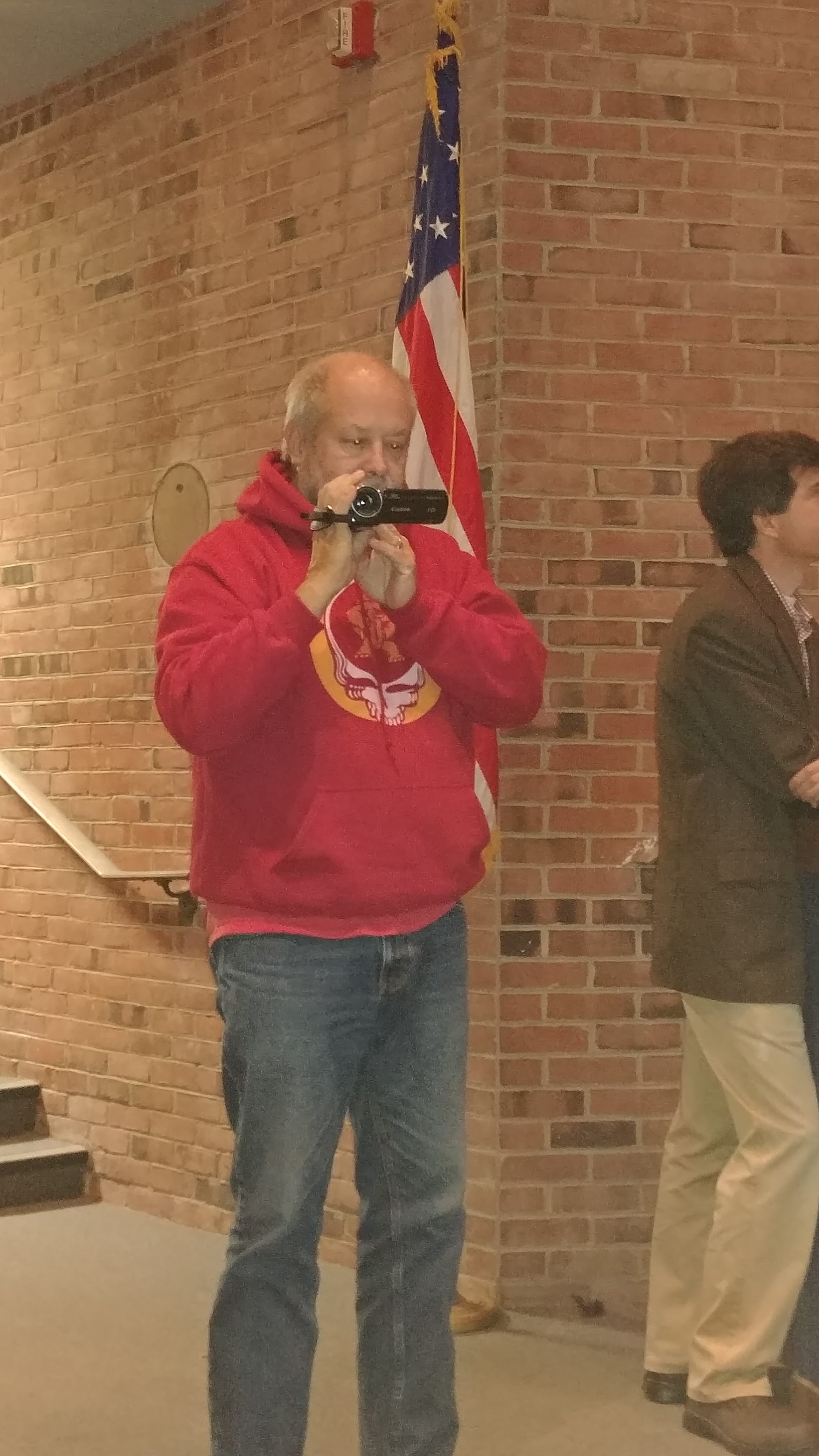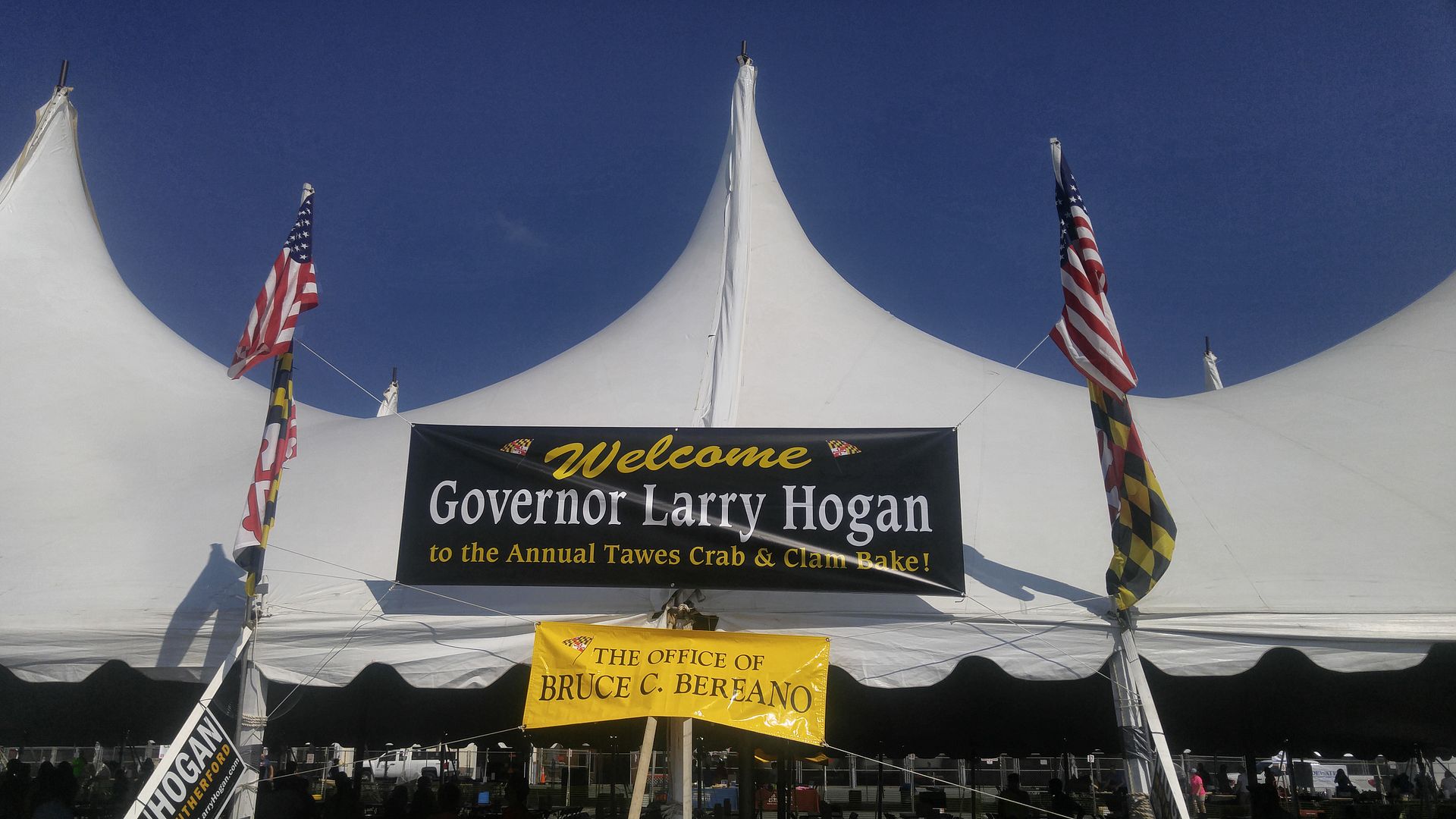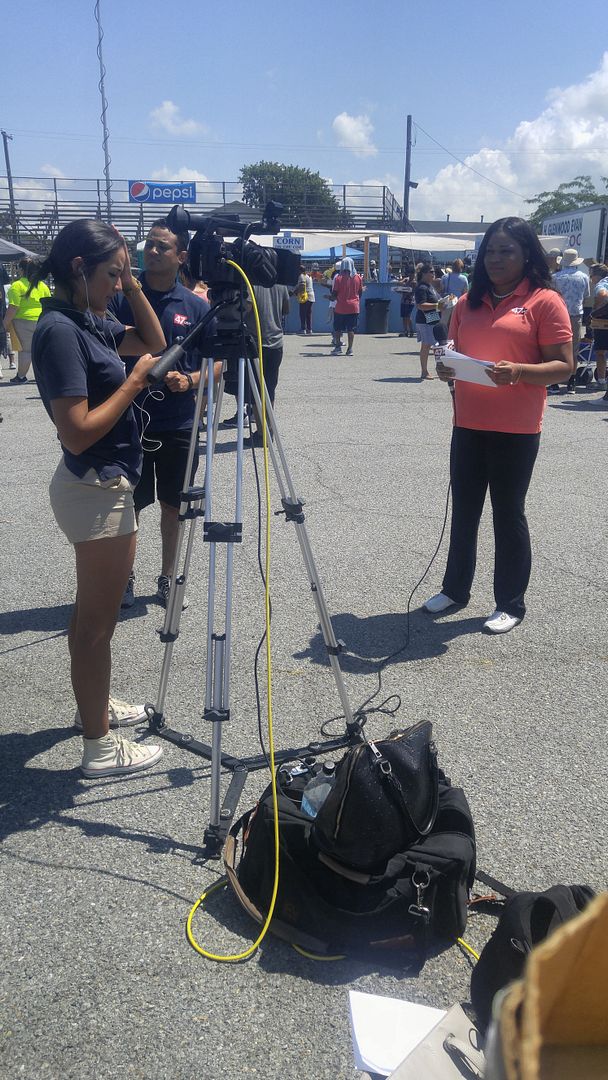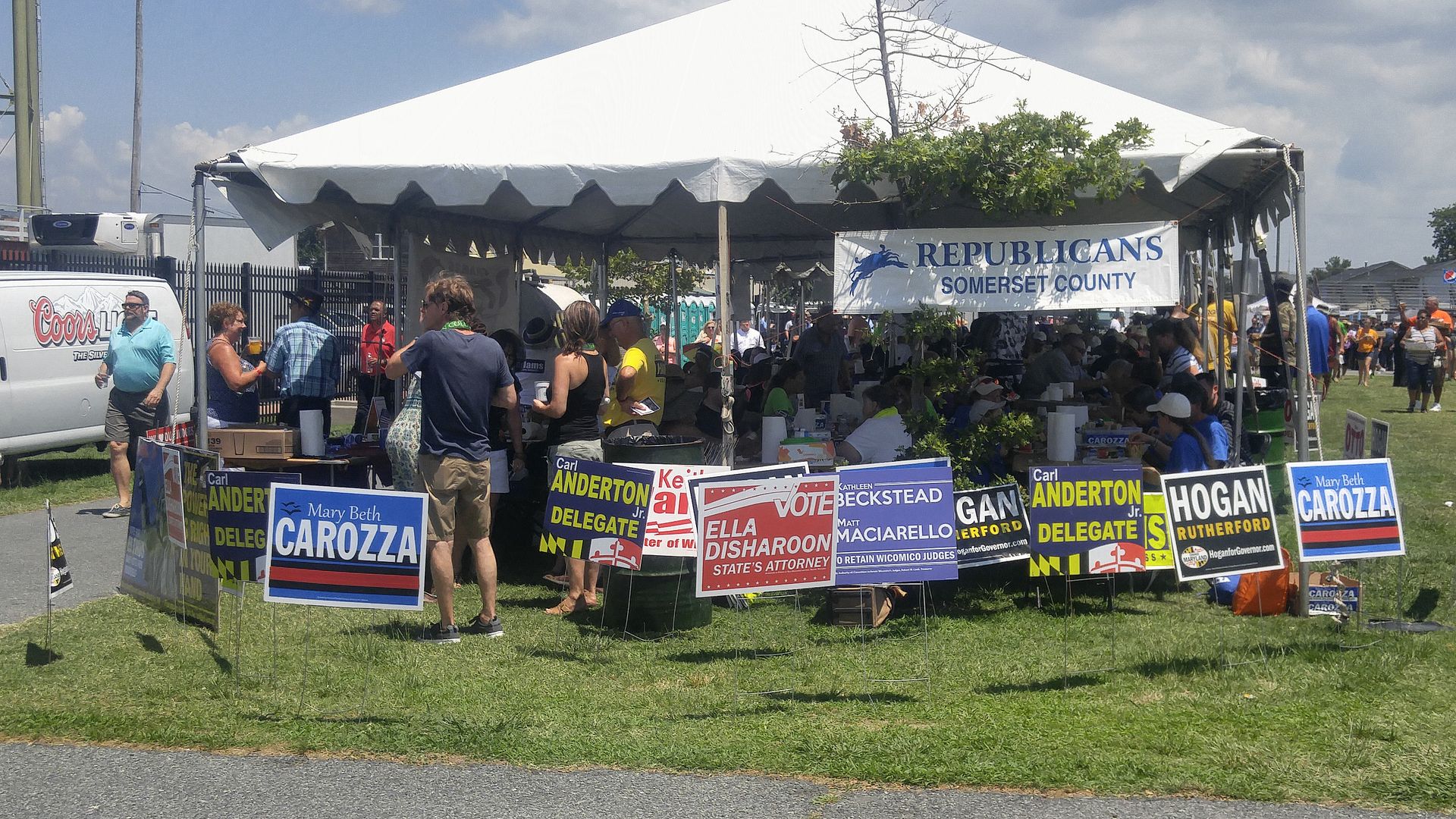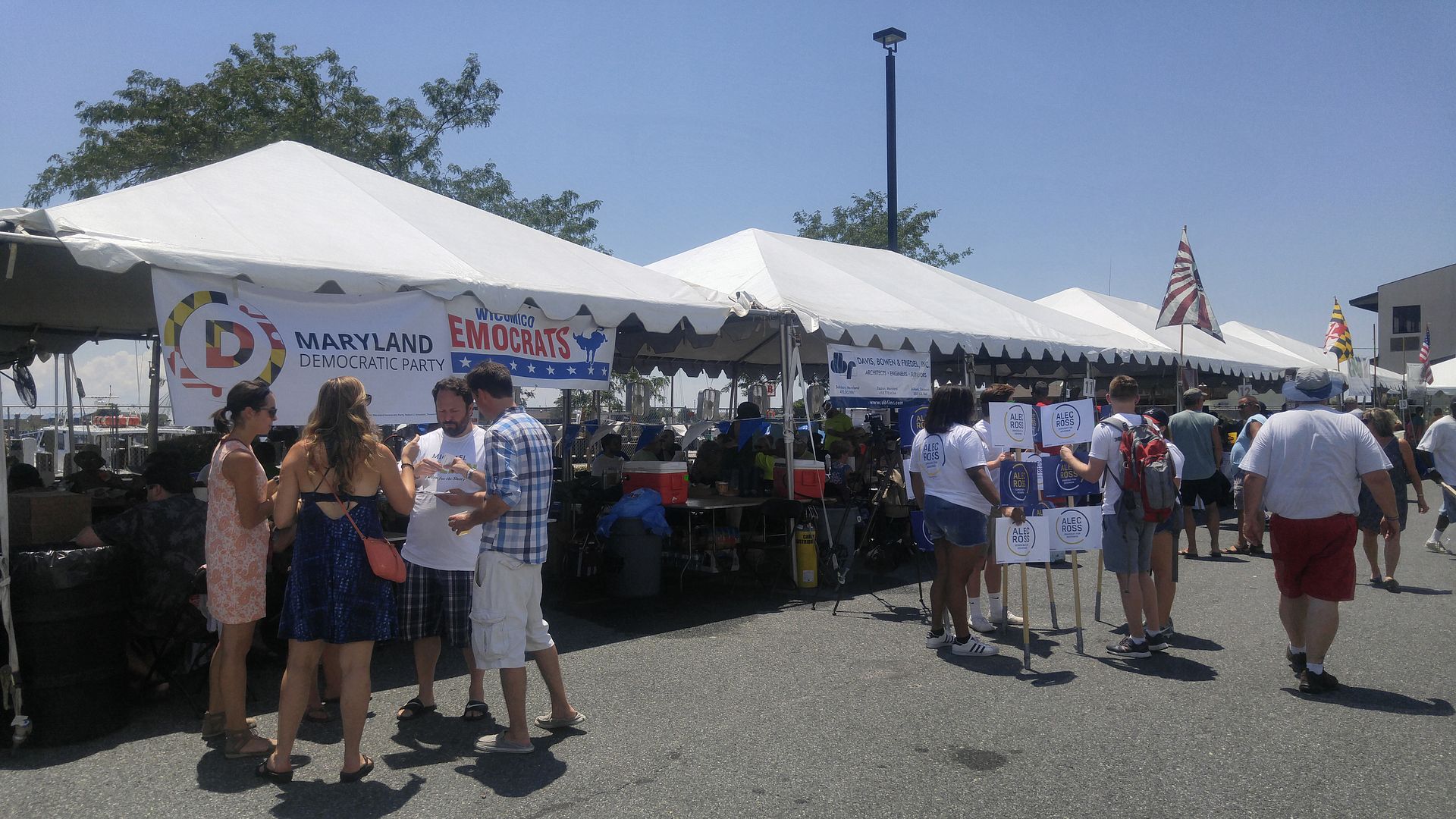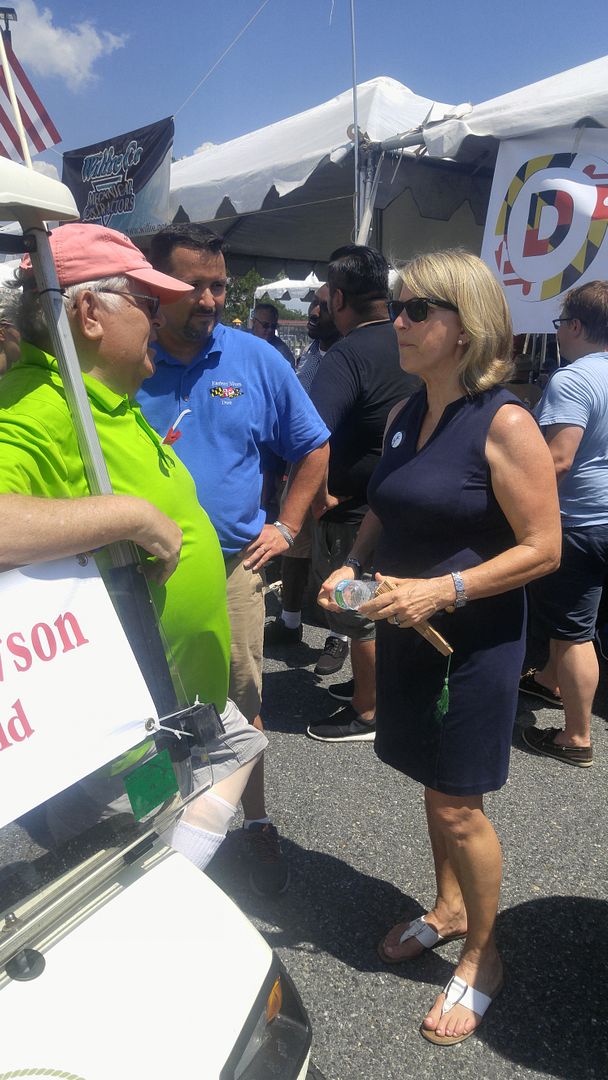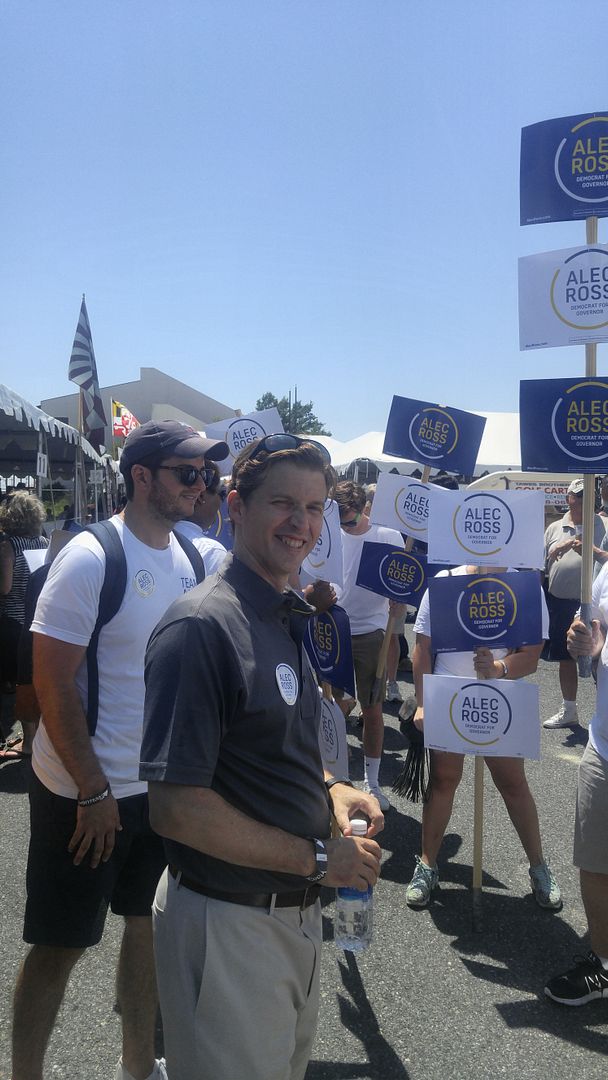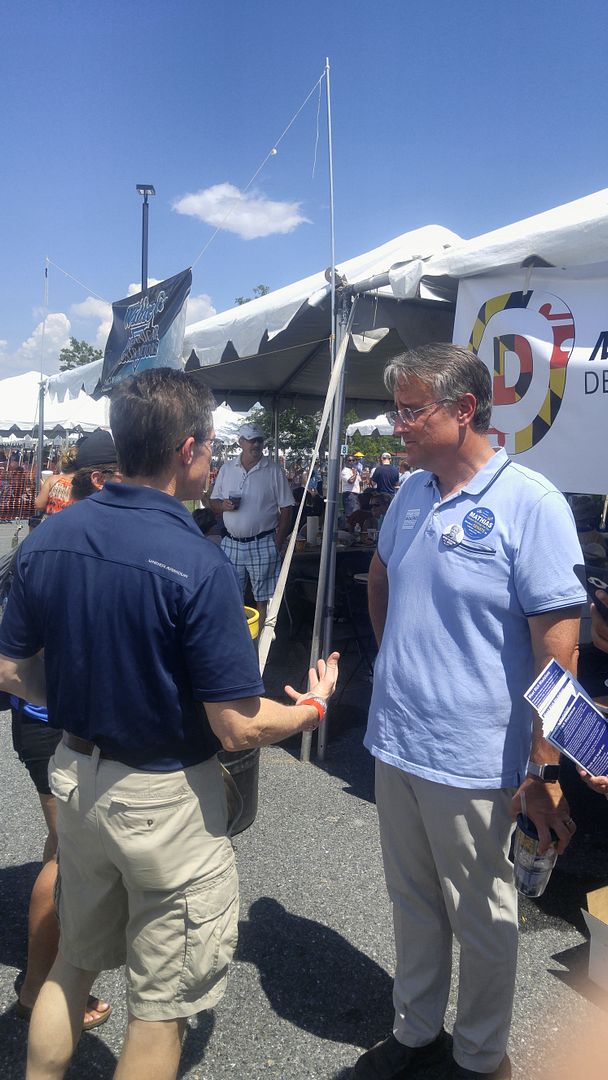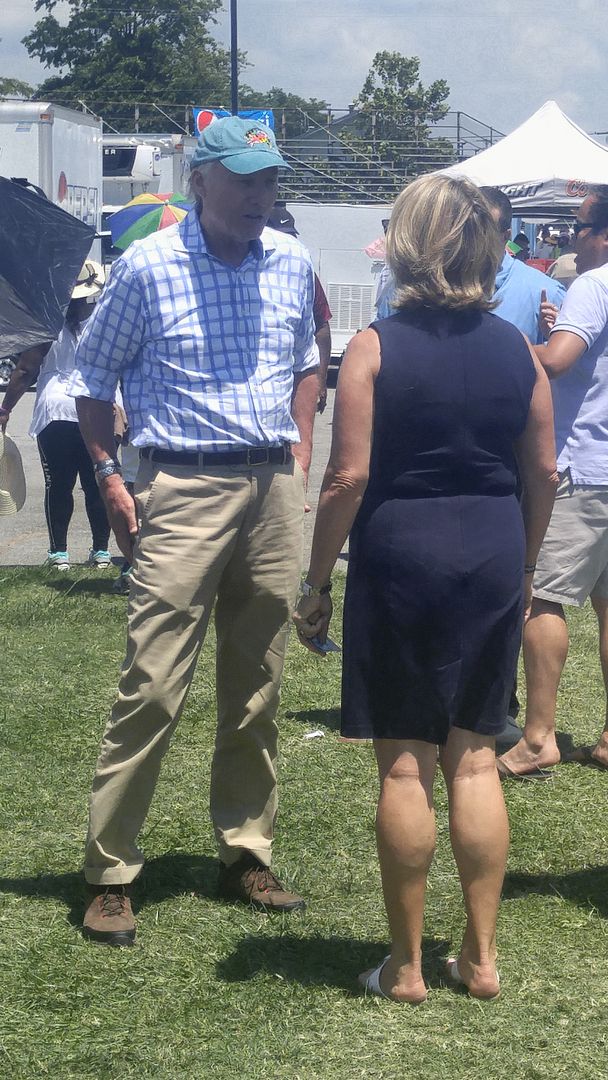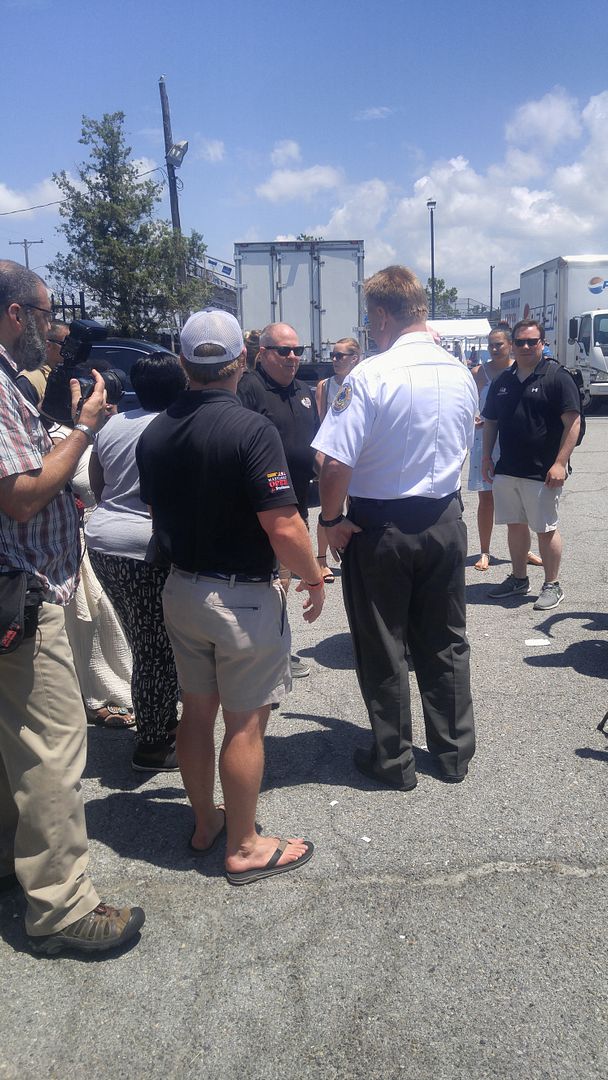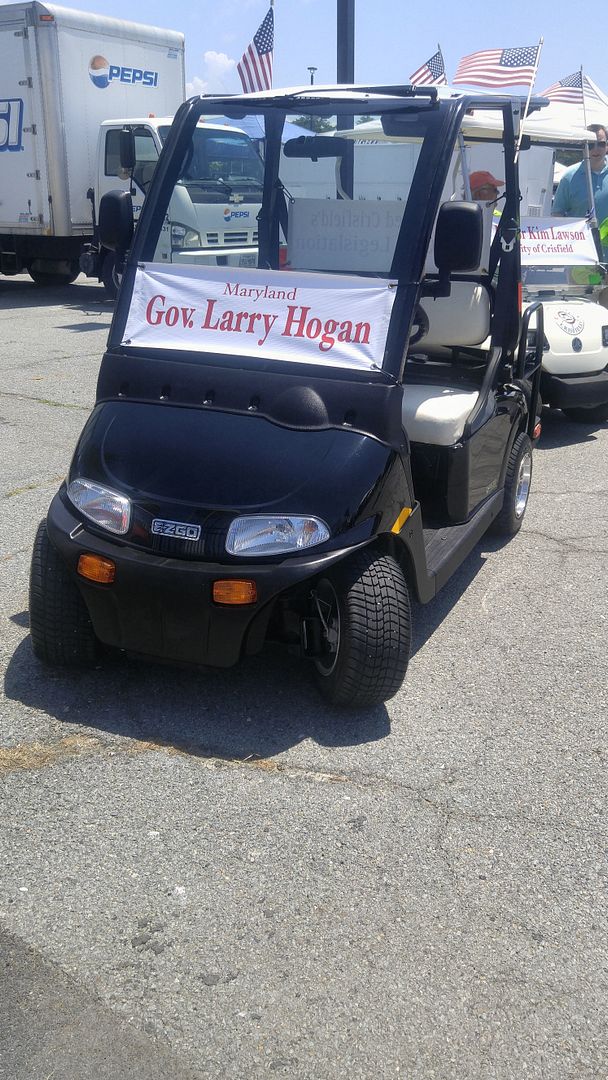There are eight candidates on the Democrat side of the ballot hoping to be the challenger to current GOP Governor Larry Hogan. On a gorgeous, almost summer-like day on the Eastern Shore, only four of them could be bothered to come to Salisbury University to address their would-be primary electorate.
Originally that was supposed to be five of the eight, though.
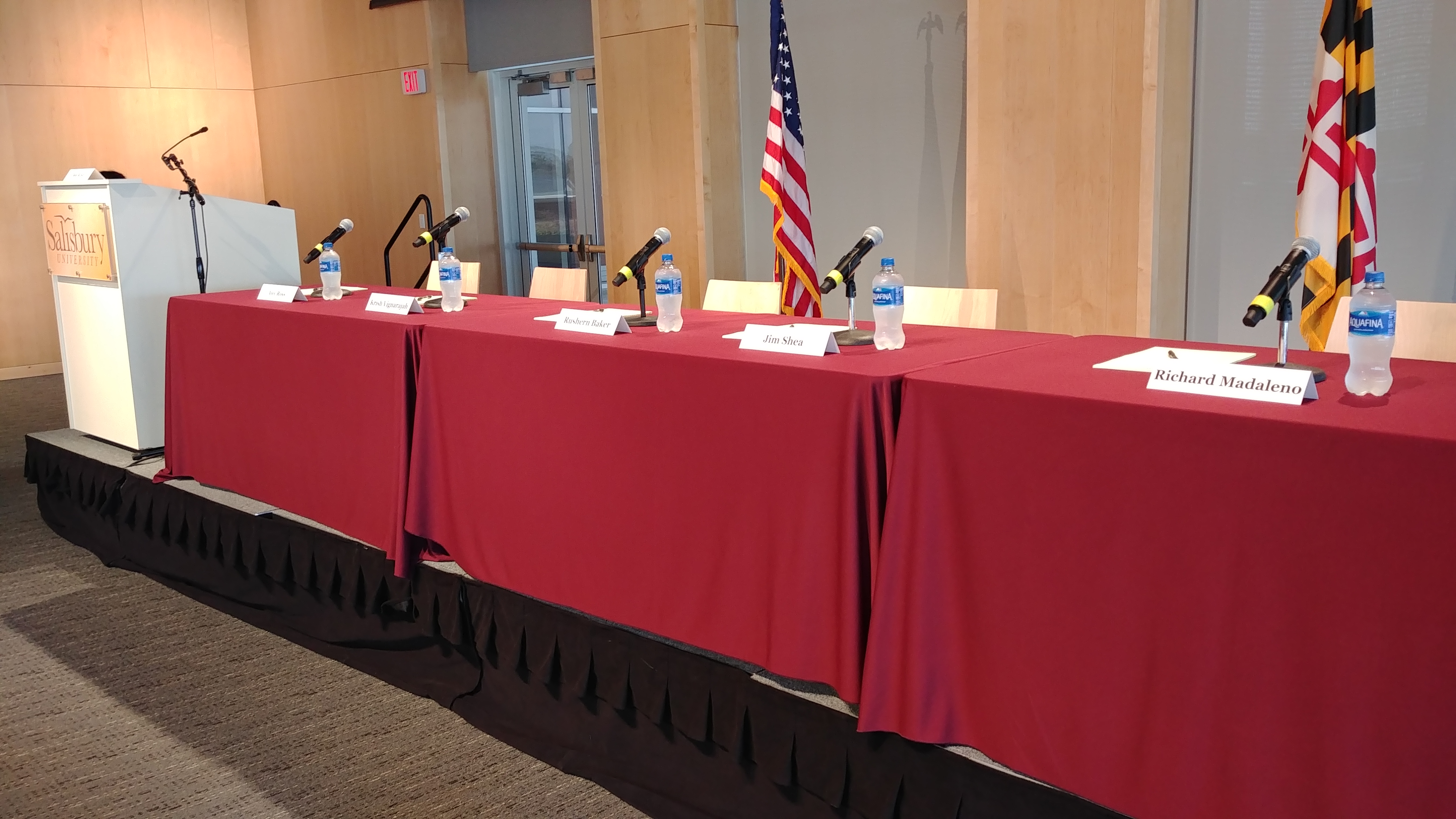
Prince George’s County Executive Rushern Baker was slated to be there, but informed the event organizers 15 minutes beforehand that he had an “emergency” and could not appear. According to his Twitter feed, he had begun the day campaigning in Baltimore City but the trail grows cold afterward. Yesterday evening there were Tweets and social media posts touting his previous endorsement by Congressman Steny Hoyer (who represents a portion of his county) and a piece touting his partnership for STEM training, but no mention of the forum or an apology for missing it. A Democrat friend of mine remarked afterward that “I know quite a few people who were definitely upset and said they wouldn’t vote for him now even if they had considered him before.” Unfortunately, that left us with a group of what would be defined as “second-tier” candidates who are polling in low single digits – combined they’re not Baker’s equal polling-wise.
On top of that, State Senator Richard Madaleno was a few minutes late, missing the opening statement but being allowed to make up for it when he answered his first question. Apparently there was an accident on the Bay Bridge, which was the topic of a subsequent question.
So the order was set, and placeholders were rearranged. This photo was taken once Madaleno arrived.
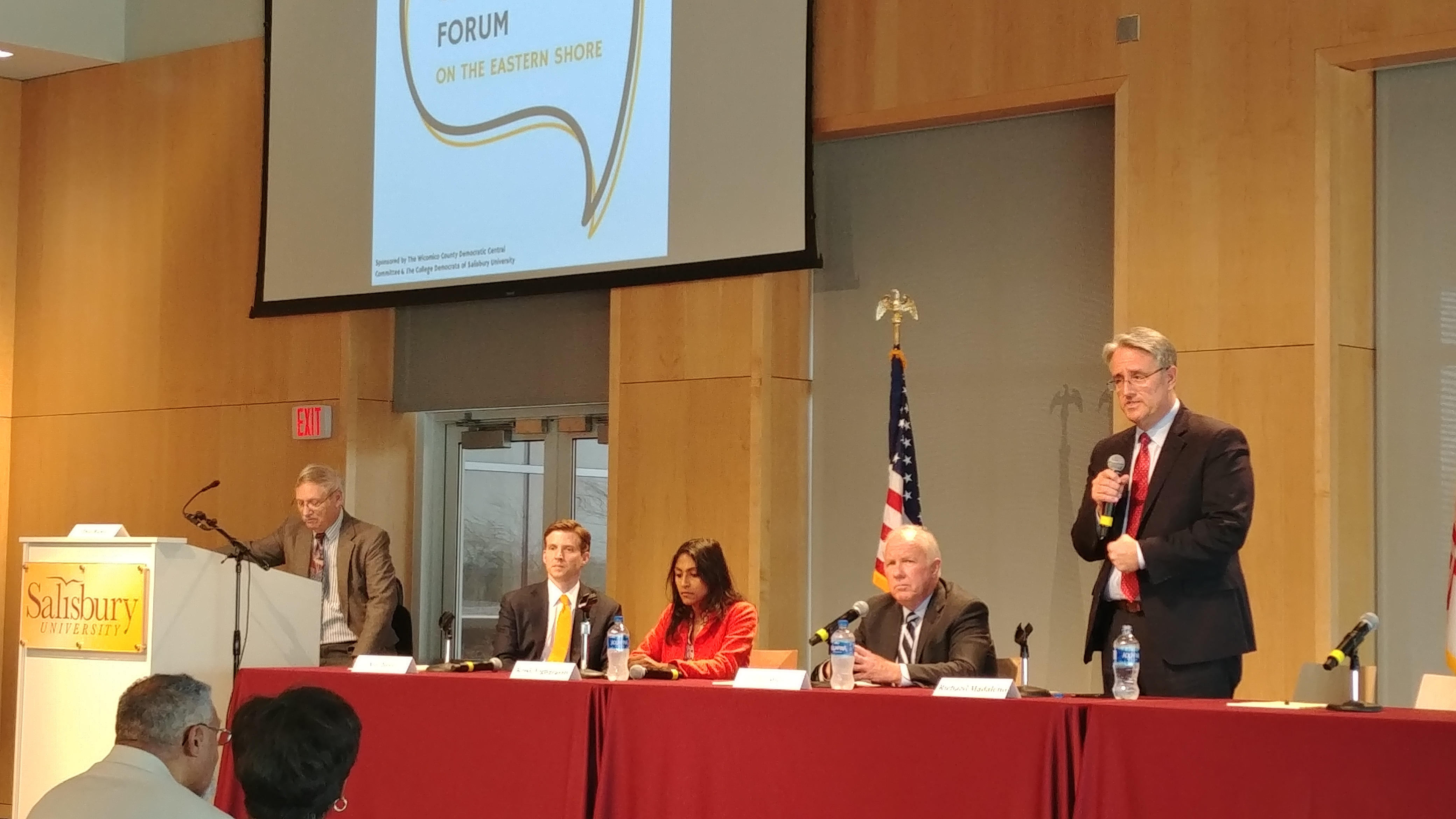
The Wicomico County Democratic Central Committee co-sponsored the event with the Salisbury University College Democrats, and aside from the horribly uncomfortable chairs we were forced to sit in for two hours the event was well-conducted for the 100 or so in attendance on this beautiful afternoon. I learned that a group of liberal Democrats can sit and listen attentively, so now I expect that same behavior at the next Andy Harris town hall that I attend. Moderator Don Rush instructed the audience early on to keep their reactions to themselves, and they complied.
I debated whether I wanted to handle this by candidate or by question, and decided that keeping the candidates’ answers together for each question would present a better, more comparative format. But first I wanted to mention something that was said by WCDCC chair Mark L. Bowen. (Just to be clear, this Mark Bowen is not Mark S. Bowen, the current Democrat Clerk of the Court for Wicomico County.) Bowen assured the gathering that “our work is being done for us…all we have to do is close the deal.” He was also the one who informed us that Baltimore County Executive Kevin Kamenetz and former NAACP head Ben Jealous were absent due to “previous commitments.” (That would be their personally lobbying the state’s teacher’s union, which endorsed Jealous yesterday at their meeting. Perhaps endorsing Kamemetz or Baker would have been problematic for the teachers given educational scandals in their respective counties.)
So after an opening statement, the four remaining candidates answered questions on these topics:
- New “economic engines” for the Eastern Shore
- Balancing the interests of agriculture and environmentalists
- Offshore wind energy development
- How they would assist watermen and the Bay
- Transportation priorities for our area
- A new Bay Bridge
- Their focus on education
- Health care – a single-payer system?
- Redistricting
But I want to begin with separate categorizations of their opening statements, and I’ll proceed in the order that they spoke. This means Alec Ross goes first and Richard Madaleno goes not at all because he was tardy.
You may recall that I spent a few minutes speaking to Alec at the Tawes event last year, when he informed me that he had a rather unique view on education for a Democrat, since he focused more on vocational education than college readiness. Obviously coming over here is something he cherishes, as he recalled childhood vacations spent in Ocean City and told the crowd his blood pressure comes down when he crosses the Bay Bridge as part of his opening statement.
His main point, though, was that “talent is everywhere, but opportunity is not.” And while “we are bringing new faces and new ideas to the Democratic Party,” Ross noted their voter registration numbers are trending downward.
I could have spent a couple minutes speaking to Krish Vignarajah, but I didn’t realize she was one of those waiting with me on the elevator to arrive. With her husband in tow and a young child, she could have been an interested observer. (She was also somewhat casually dressed.)
Krish came to America as a infant, emigrating from Sri Lanka with her parents. (A few years later, Sri Lanka would be embroiled in a civil war, so tensions were rising at the time.) She also painted a gloomy picture of Maryland, telling the audience that “opportunities are declining” but she would be “Larry Hogan’s worst nightmare” as a candidate. “We need to give people a reason to vote,” she exhorted.
Jim Shea used the Bay Bridge as an example of how infrastructure could help the economy. He was running to “invest in Maryland,” with a focus on three areas: education, transportation, and infrastructure.
Leading off the questioning was one about new economic engines for the Eastern Shore. All of them agreed agriculture was going to remain the primary driver, but they also wanted to add green energy to the mix in various ways.
For Vignarajah, the object wasn’t to attack “Big Chicken” but to address its environmental issues through research. She also touted the idea of tourism, both as part of an “outdoor economy” and “heritage tourism.” Shea stressed his belief that we need to bring the two sides of farmer and environmentalist together. Corporations want a good environment, too, he said, but “we need clarity on the regulations.” Jim also believed that we needed to grow our own businesses and not work as much at attracting those from other states.
Madaleno, after giving a brief introduction, talked about keeping agriculture sustainable, both environmentally and economically, but also brought up the idea of “eds and beds” – our educational institutions and tourism industry. Richard also pointed out the impact from Wallops Island and its space industry. He had one other point, but he joked that “I feel like the Secretary of Energy” because he couldn’t recall it. Later, he said Shea reminded him it was offshore wind – it was a byproduct of seeing each other so much and knowing their talking points, as Shea mentioned later: “(Madaleno) did the same thing for me at another forum.”
Perhaps Alec’s drop in blood pressure stemmed from the produce he’s purchased at an Eastern Shore roadside market. As the produce was bigger and better than ever at his last stop, Ross asked how they did it. “Precision agriculture,” the stand owner beamed. Agriculture in the state needs to continue to evolve, he added, the combination of analytics and agriculture would allow that to happen. And to help small farmers, Ross was proposing a billion-dollar investment in a “green bank” model – a model already in place in New York and Massachusetts. (In looking this up, perhaps Ross misspoke: I found programs in place in New York and Connecticut as a way to promote “clean energy.” What Ross proposes may have a slightly different focus.)
So how do you balance agriculture and the environment? Would you add restrictions to the poultry industry?
Madaleno, Shea, and Vignarajah all touted the Community Healthy Air Act, a measure Madaleno sponsored during the last General Assembly session, and one that Shea said “made sense.” (It did not get beyond the hearing stage.) Alec and Krish also brought up the Phosphorus Management Tool, with Krish calling it a “win-win.” She also proposed to “empower” farmers with a Farmers Rights Act.
Ross wanted all sides to play by the same rules as well, saying that neither side thinks they are lying when it comes to the facts.
Needless to say, all of them were supportive of wind energy development. Madaleno said they “will make a lot of sense,” believing the won’t impact the viewshed and be the basis for job growth. They can “drive the economy ahead,” added Shea; however, he was concerned that there was no way to store their energy. We need to invest in that technology, he added.
Ross and Vignarajah were just as aggressive, with Alec comparing areas that don’t “embrace the future” through wind to the coal country he grew up in and assuring us that windmills would not keep them from the beaches. Vignarajah promised 2,000 megawatts of wind power in her first term and chided Larry Hogan for not being proactive. We are exporting our dollars and importing their pollution, she said regarding the current situation.
This question also provided a couple of shout outs: Madaleno praised fellow Senator Jim Mathias: “No one fights harder for the Eastern Shore – I have some of the scars.” Alec Ross said of Salisbury mayor Jake Day. “I like the work (he) is doing as mayor.”
When it comes to watermen and the Bay, the answers were again rather similar because they focused more on the Bay, with some expressing the recovery of the oyster population as one positive development. It’s a “win-win” to support the oyster industry, said Vignarajah, but don’t forget the tributaries to the Bay like the Choptank, Potomac, and so forth. Shea warned that it’s “too soon” to harvest oysters as watermen are pleading with Governor Hogan to allow.
Madaleno, though, expressed the opinion that the Bay’s recovery was evidence that “government can do and does good things.” And while he joked that being a member of the General Assembly meant he had to become an expert in crabs, oysters, and chicken, he added that cleaning the Bay has to be a multi-state effort. Richard also pledged to give waterman “a voice at the table.”
And while Ross would do “whatever it takes” to accomplish this difficult and expensive work, he spent part of his time noting that “when you drive into Maryland, you should be entering The Resistance.” Chiding the “abhorrent” leadership at the EPA, he wanted a set-aside to sustain watermen. Shea temed a similar concept as an “investment” in the needed vocational training for the “social costs of our advancement.” On the other hand, Vignarajah expressed the “unpopular” view of crediting Larry Hogan with trying to protect Chesapeake Bay funding.
As far as transportation priorities for our rural areas are concerned, there was no real shock in their answers. Krish led off by saying “let us try to be innovative,” making the investment in our economy of extending the MARC system to Salisbury and Ocean City as “an attraction” to provide “more mobility.” Jim Shea agreed that the Eastern Shore has a lack of mass transit.
Madaleno and Ross blasted Larry Hogan’s transportation plan, with Ross calling it “a press release” and “not realistic” because it mainly focuses on DC and Baltimore. Hogan was “one of the luckiest politicians around,” said Madaleno, who noted that the Purple Line was “placed on a credit card” while the gas tax Hogan criticized was now being used for highway widening. Richard would invest in “smart mass transit,” meaning on demand.
Shea was more realistic, calling transportation “anathema” for career politicians because projects take so long. He termed the high-speed rail project backed by Hogan “pie in the sky” and would vet his plan with citizens around the state.
Most telling to me was part of Alec’s answer, where he called widening U.S. 50 “looking backward” and mass transit “looking forward.” So I wasn’t shocked by their answers to the next question, about a third Bay Bridge.
At least Jim Shea was honest enough to answer “I don’t know what the correct answer is.” (Hint: look at how close Dorchester and Calvert counties are.) His bigger issue was funding education. Madaleno was more worried about whether the current bridges survive, as the Hogan toll reductions “restrict the decision” on these bridges, which Madaleno would replace there.
Alec and Krish were even more blunt. “People need investments in them,” said Ross. High-speed connectivity and schools were a higher priority in his eyes, with another Bay span “way down the queue.” Vignarajah echoed the sentiment: “A lot of priorities are ahead in the queue” over the Bay Bridge, adding “we have a 1950s budget in many respects.” She would spend money on universal broadband, too, noting 1 in 12 Maryland residents don’t have high-speed internet access.
Since it had been hinted around at, the focus shifted to education. Education “will be the centerpiece of (a Madaleno) administration,” said Rich, and “this is why (Ross) is running for governor,” he said, but all of them were ready to give free stuff out: universal pre-K and community college were most mentioned.
Madaleno touted his membership on the Kirwan Commission, while Krish advocated for a “cradle to career” educational policy, including “hot and healthy meals.” Shea’s “bold and comprehensive” plan (which he mentioned was there in full on his website) included as well what he called “wrap-around services” and “funding solutions.”
One thing I did like about Alec was his advocacy for vocational education, rather than the “terribly elitist” idea all kids have to go to college. He promoted an online academy to assist rural students in receiving services not otherwise available to them and advocates for universal computer science education.
We also waited until nearly the end to learn about their proposals for health care, and whether it included single-payer?
Of course it does, but not everyone is as honest as Jim Shea, who, while he told the audience that “a single-payer system is something we will eventually move to,” it wasn’t practical for a single state to adopt. That push had to be at a federal level, but we could control costs locally through a collaborative approach.
Otherwise, it seemed the consensus was that Obamacare was just a start, or a “strong start” in the words of Vignarajah. For her, “health care is a basic human right” and she advocated for a public option to lead to single-payer. Madaleno insisted that Obamacare “has worked to reduce costs” and brought Maryland down to 6% uninsured. He warned the gathering to not fall for the “trumped-up theory” that the ACA has failed. The fight was against insurers and Big Pharma to cut costs. (This also gave Madaleno a chance for a second Mathias shout-out: he was a “hero” as a voice for rural health care.)
Alec called on us to “resist the evil that is coming out of Donald Trump’s Washington.” While he admitted that “we have to continue to play defense,” he gave an example of something he would do differently: because of the waiver system Maryland was benefiting from, Medicare for All wasn’t possible – but Medicaid for All as a public option was.
I was honestly surprised by the final question, which had to do with redistricting. Had there been five participants, the health care question would have likely been last.
Only the American system allows for politicians to pick their voters, said Krish, but it was a “problematic” issue that had to be addressed at a national level. Shea disagreed, saying that while gerrymandering had polarized us, it wasn’t a federal problem – but the solution wasn’t (as he called it) “unilateral disarmament” here in Maryland. It needs to be “fair and smart,” Jim added, but he warned there’s no such thing as a non-partisan group.
Madaleno admitted that the gerrymandering “got out of hand” during the O’Malley administration (but failed to mention his lack of objection at the time.) Going with the theme that “the Koch brothers have bought the Congress they wanted,” Rich wanted to reform as part of a multi-state compact.
Alec saw the issue as part of the “damage to democracy,” which has led to both far-right and far-left factions in Congress. “We need representatives to engage with everyone in the district,” he said.
It should be noted that Vignarajah used part of her answer time to express her disappointment that no question was asked on opioids. “We need action” on both the over-prescription and treatment aspects of that problem.
In conclusion, Jim Shea said Democrats needed to unite as a party. “We’re going to pull together because we are a great party and take the governor’s seat back.”
Richard Madaleno contended that the GOP of Donald Trump is “in the process of imploding.” Yet since there will be gridlock in Washington, it make the governors more important, and Maryland has one of the most powerful chief executives in the nation. “It matters who the governor of Maryland is,” he continued, and “this is the time to have serious experience in office.” That was a nod to his years in the General Assembly, but his goal was to “move the state in a progressive way.”
Alec Ross told the local Democrats that it’s “more about ‘we’ than ‘me,’ but disagreed with Madeleno on one point: the GOP is not coming apart. “We’ve got to work for it,” he said. He also promised “no one will be more anti-Trump than me,” but warned the group they “can’t just resist,” they have to have an “aspirational agenda.” It was time for new faces and new ideas to come forward., Ross concluded.
“How do we beat Larry Hogan?” asked Krish Vignarajah. “No man can beat Larry Hogan, they say. Well…?” While Hogan “fakes left and moves right,” Vignarajah pointed out that 61% of those who toppled incumbent Republicans in this cycle were women. She pledged a “fiscally responsible. socially progressive” administration.
I’ve noted above that Jim Mathias was in the building, but there were a handful of other Democrats seeking local and state office there: Michael Pullen for Congress (who sat two seats away from me and never said a word), Holly Wright for Senate District 37 (who did introduce herself to me), Delegate 38A candidate Kirkland Hall, and county-level candidates Bill McCain (County Council) and Bo McAllister, who I had spoken to at last fall’s Good Beer Festival. (You would have known that had my old cell phone not crapped out the next day, before I could write the post.)
They did their thing and I did mine, but mine is done.


